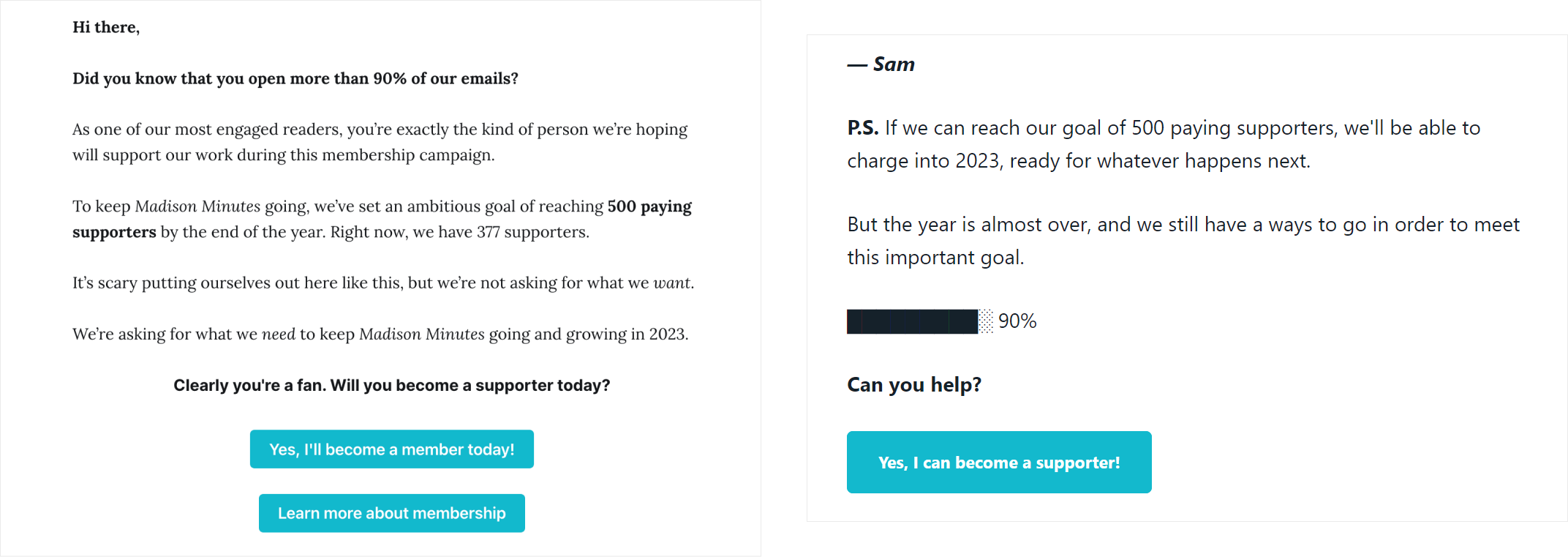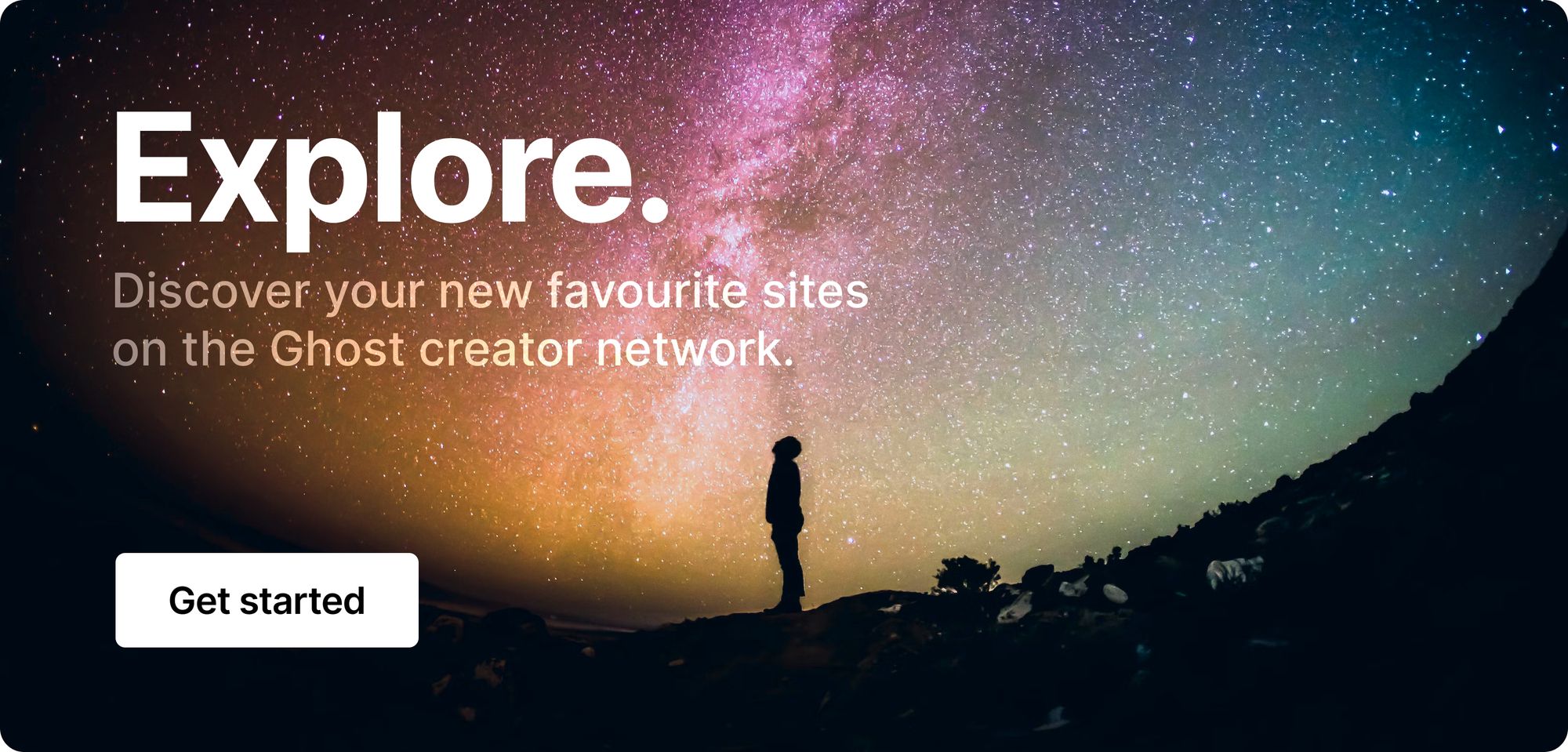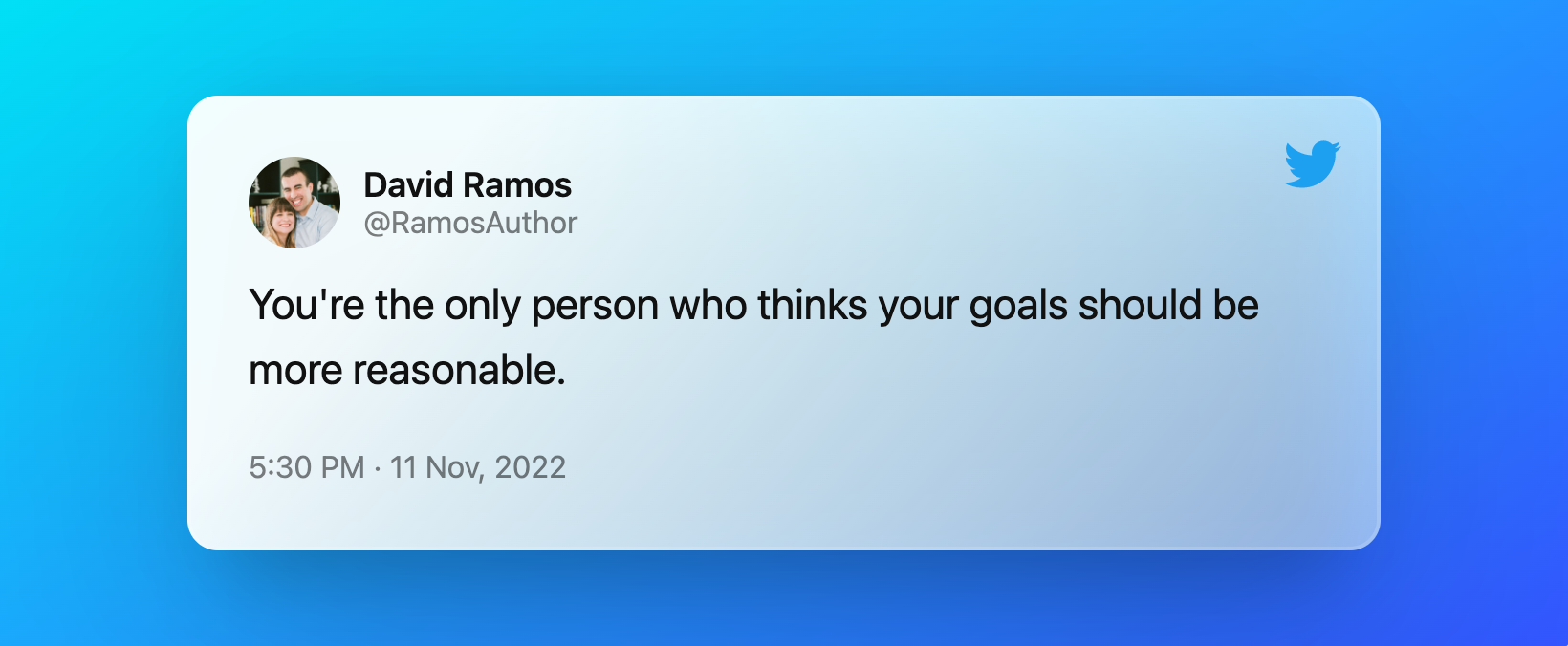🔥 Why we've misunderstood what it means to "focus"
For most of us, focus is synonymous with attention. It's light, like something we can toss around at a moment's notice.
But this definition is incomplete.
If you look up the origin of focus, you'll find that the word came from the center of a home — the hearth. It was the meeting point, the epicenter of activity, the "point of convergence."
A better way to understand focus is to think of it as a gathering. A gathering of all your resources, energy, and ideas and deploying them towards a singular purpose.
To make one big ask. To fight one impossible opponent. To tackle one outstanding goal.
Because, as you'll see in the stories below, a truly focused creator is an unstoppable one.
💬 In this week's issue:
- Direct. How being honest with your audience can supercharge your goals.
- Enemy. Why highlighting your opposite will help you grow an audience faster.
- Target. Learn the proven way to depower the obstacles standing in your path.
🙋 Asking your readers for support

Directly asking your audience to support your work financially can feel like a difficult thing to ask. But the truth is, if you’re creating something your readers truly value, asking for their help can be an effective and rewarding way to grow your business.
The duo running independent local news outlet Madison Minutes did exactly that. In a series of newsletters, Hayley Sperling and Sam Hoisington, challenged their readers to step up and support their free daily newsletter, allowing them to continue delivering a great product.

The response was overwhelmingly positive. Within a month of delivering their ask, Madison Minutes saw a 40% increase in paid members, and a 44% increase in MRR (monthly recurring revenue).
The key to success when asking directly for support is to make it extremely clear what you’re asking for, and why.
- Reiterate value. Remind your audience of what your product has already offered, highlighting what they’d be missing if you were to stop creating it.
- Get specific. Set a shared goal that your community can participate in, such as # number of paid members, and crucially, spell out exactly what readers will get once this goal is met.
- Be transparent. Sharing behind-the-scenes insights about your business helps your audience understand your ask more clearly. For example, if you're in the process of working on your product full-time, or hiring new writers, share this context.
- Ask more than once. Give you audience multiple opportunities to consider your ask. For example, Madison Minutes success was a result of sending five fundraising campaign emails, in addition to asks embedded in the daily newsletter.
🗞 Latest tips & stories
- Ghost's new automatic list cleaning is live
- Looking for a niche? Try these trending topics
- How to make six figures per month as a creator
- You can now monetize YouTube Shorts
- 5 ways to increase your motivation
🥊 Who are you against?

Most of the discussion around building an audience online approaches the subject from a positive viewpoint — who are you, what do you stand for, and what niche are you diving into?
Writer Justin Welsh, who has built their own 7-figure creator business in just a few years' time, takes a different approach. They begin by asking, "What is something that you vehemently disagree with?"
Defining this "creator enemy" helps you build an audience by aggressively displaying what you are not, which in turn attracts like-minded people.
We see examples of this tactic every day:
- Solopreneurs who are against corporations.
- Vegan or vegetarian influencers who don't consume meat.
- Digital nomads who are anti-consumerism.
Showing people what you are not can be the fastest way to help them understand what you are.
So, who is your opposite? And how can you use those differences to stand out online and make it easy for your ideal audience to find you?

👀 Where you look is where you go

Austin Kleon, author of the bestseller Steal Like an Artist, recently wrote on the topic of target fixation. It was an idea they unintentionally used to achieve success but didn't internalize until they took up biking as a hobby.
Here's a quick definition to start.
Target fixation is an attentional phenomenon observed in humans in which an individual becomes so focused on an observed object (be it a target or hazard) that they inadvertently increase their risk of colliding with the object.
Now, there's a single phrase in there that warrants extra attention: "a target or hazard."
If we keep our eyes on the ball, as they say, and stay focused on our singular goal, this principle encourages us that we'll eventually reach it. But if we are constantly paying attention to what could go wrong, our gaze will inevitably lead us into a ditch.
The next time you encounter an obstacle in your path, immediately look for ways to maneuver around it, through it, under it, or over it. When the obstacle loses your focus, it loses its power.
👀 Curators pick

❤️ Enjoy this newsletter?
Forward to a friend and let them know where they can subscribe (hint: it's here).
Anything else? Hit reply to send us feedback or say hello.
Join an invite-only community! Connect with like-minded people who create content professionally — apply here.






